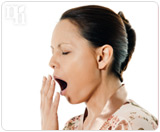
Widely used to treat symptoms of menopause, from hot flashes to fatigue, bioidentical hormones have become a popular alternative to traditional hormone replacement therapy. But where did these artificial compounds originate from, and what has their impact been on treating symptoms of menopause? Read on to learn about the history of bioidentical hormones.
From Past: Bioidentical Hormones
First used to alleviate menopause symptoms in the 1930's, bioidentical hormones were discovered by Canadian researcher James Collip. He discovered their existence after developing a method to extract an orally active estrogen from the urine of pregnant women. In 1941, it was marketed by then manufacturer Ayerst.
Bumps in the Road: 1970's Controversy
During the 1970's, the safety of bioidentical hormones came into question after reports indicated risks of synthetic conjugated estrogens. Additional inquiry and investigation found that after progesterone was added to estrogen, these risks decreased. When the use of synthetic progesterones was discontinued, a study published in 1980 in British Medical Journal found that oral progesterone made from bioidentical hormones might be a safer alternative. This prompted further research in understanding bioidentical hormones.
In the Spotlight: FDA Approval and Celebrity Testimonials

In May 1998, the Food and Drug Administration (FDA) approved oral bioidentical progesterone. The pioneers of bioidentical hormone replacement therapy (bHRT) were physicians John R. Lee and Jonathan V. Wright. Both authored popular books promoting bioidentical hormone replacement therapy, and Wright helped to popularize the triple estrogen formula: estriol, estradiol, and estrone. Previous formulas had only used estradiol.
Following promotion by Suzanne Somers and Oprah Winfrey, bioidentical hormones gained further popularity in mainstream markets and the treatment has since resonated with many menopausal women.
Recommendations
Although there have been no large-scale studies about the safety of bioidentical hormones, many doctors still tout their benefits in helping to relieve symptoms of menopause like hot flashes, night sweats, vaginal dryness, and insomnia. However, generally these hormones are expected to carry the same risks and benefits as their non-bioidentical counterparts.
It is always recommended to talk to your doctor to find out if bioidentical hormone therapy is right for you. There are many natural treatments available, such as lifestyle changes and herbal supplements. A combination of both will be the best treatment for those women who are looking for an effective and natural menopause treatment. Click here to read more information about the different alternatives to bioidentical hormones.


